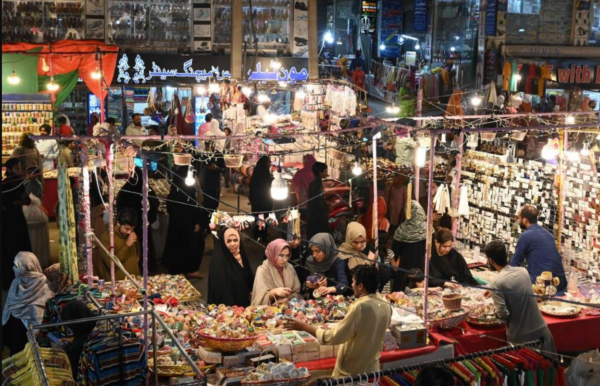The Eid celebrations typically bring on a shopping frenzy, but this year, that did not happen in Pakistan due to the country’s high inflation rate and the declining purchasing power of the population.
According to an upcoming research report on the situation of business-to-consumer (B2C) e-commerce in Pakistan, e-commerce enterprises in Pakistan are having trouble keeping up with their current sales levels since consumers’ purchasing power has decreased as a result of record-high inflation and significant devaluation.

According to the findings of the research that was compiled by Data Darbar and AlphaVenture in collaboration, the percentage change from the levels in 2021 has been on a downward trend since September, but there has been a little improvement in October, November, and December.
In spite of the fact that it is projected to bring in $6.4 billion in revenue by the year 2023, Pakistan’s e-commerce sector is now ranked 47th in the world and is only anticipated to see a compound annual growth rate (CAGR) of 6.2% over the course of the next five years.
Despite the fact that the online business-to-consumer (B2C) retail industry in Pakistan has developed, the country’s market size is still significantly smaller than that of comparable economies such as Indonesia, the Philippines, Egypt, and Bangladesh.

However, funding for e-commerce startups has expanded significantly, resulting in a tenfold increase in the sector’s portion of the country’s total investment value since 2019, despite the fact that the majority of this capital has been invested in the B2B segment in recent years.

